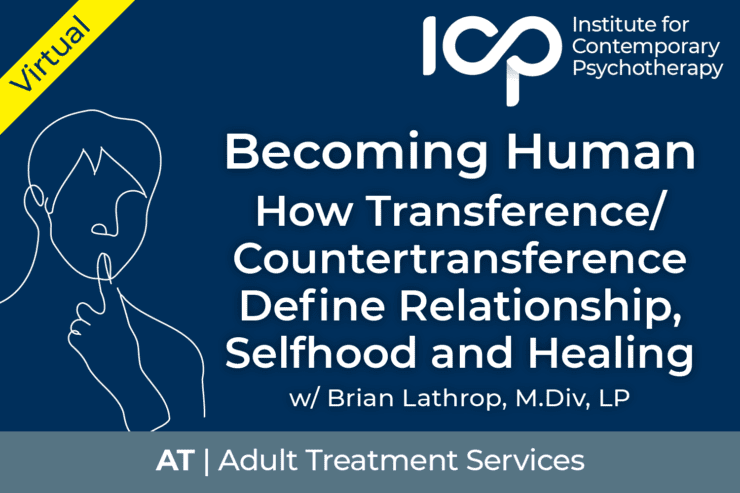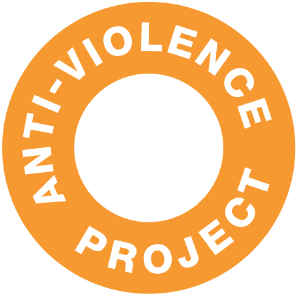

Approved for 2 NYS CE credits
In this workshop, a modern understanding of the role psychoanalysis might play in the mental health field will be explored. The hope will be to lead attendants to a practical sense of when and how this might be the intervention of choice for folks seeking therapeutic aid. Transference and Countertransference are the core dynamics of analytic engagement and form the nexus within which deeper healing and wholeness can be sought and found. Please join us in this playful and meaningful engagement!
About the Presenter:
Brian Lathrop is a Psychoanalyst with 33 years of experience living and working in Greenwich Village New York, Brian is a graduate of the Westchester Institute for Psychoanalysis and also a graduate of the Masterson Institute. He has led numerous workshops and trainings on Psychoanalytic technique and approach as it relates to sexual behaviors and the sense of sexual selfhood. He is a specialist in Character Disorders and works primarily within the approach of Dr. James Masterson.
An important note about CEs:
ICP is an approved provider of continuing education credits for social workers, mental health counselors, marriage and family therapists, psychologists and psychoanalysts through the New York Department of Education. If your license is from a different state, please contact your state’s licensing board to find out if they will accept CE credits for New York State. If your license is from another state, please enter your license number with your state in parenthesis, ie 54321 (CA).
__________________________________________________


Approved for 3 NYS CE credits
The workshop will identify and define violence against Lesbian, Gay, Bisexual, Transgender, Queer, and HIV-affected (LGBTQH) communities. We will explore how gender-based violence is a Queer issue and the unique ways that LGBTQH individuals experience violence at the intersection of actual and perceived identities, including gender identity, gender expression, sexual orientation, HIV status, race, ethnicity, national origin, language, ability, and religion. We will share insights gained from the work the Anti-Violence Project does with clients at intersections of marginalized identities and the systems they navigate at the micro, mezzo, and macro levels. The workshop will focus specifically on dynamics of relationship violence that challenge the binary ways of systemic and mainstream understanding of harm.
We will outline best practices when interacting with LGBTQH individuals in order to reduce the potential for re-victimization. We will specifically discuss strategies to explore relational dynamics from a harm reductionist and antioppressive framework that is affirming of identity and uplifts the nuances of LGBTQH survivorship and intersectional lived experience.
An important note about CEs:
ICP is an approved provider of continuing education credits for social workers, mental health counselors, marriage and family therapists, psychologists and psychoanalysts through the New York Department of Education. If your license is from a different state, please contact your state’s licensing board to find out if they will accept CE credits for New York State. If your license is from another state, please enter your license number with your state in parenthesis, ie 54321 (CA).
__________________________________________________

Workshop: The Elephant not in the Room:
Will Psychoanalysis Survive the Screen?
with Leora Trub, PhD and Joyce Slochower, PhD


Don't miss out on this 2 NYS CE Credit virtual talk on Thursday, September 28th from 7pm-9pm on Zoom with Leora Trub, PhD and Joyce Slochower, PhD
Until Covid upended the psychoanalytic frame as we knew it, most of us assumed that the therapeutic process required that analysts’ and patients’ bodies occupy the same physical space. While Covid forced us to abandon these assumptions, we anticipated, even yearned for the day when we could return to in-person work.
Today we’re in a gray zone. To mask or not to mask? To remain remote or risk exposure? While these decisions in part are informed by clinical considerations, our personal necessities are likely also implicated. Do we rationalize when we declare remote therapy equivalent (or nearly equivalent) to in-person work? Do we minimize the health risk to ourselves and our patients when we return to an in-person model? In this talk we invite you to interrogate the factors—conscious or not—that inform our use (or rejection) of remote work. We also aim to explore the short- and long-term implications of working through a screen for the psychoanalytic field as a whole.
Leora Trub, a clinical psychologist, has written extensively on these issues. She runs the Digital Media and Psychology lab at Pace University where she investigates how technologies affect our conceptions of ourselves and our relationships with others.
Joyce Slochower will act as facilitator and discussant.
Presenter – Leora Trub, PhD
Leora Trub, Ph.D., is Associate Professor at Pace University’s doctoral program in School/Clinical-Child Psychology, and has a private practice in New York City, where she treats adolescents, adults and couples. Her primary research interest is the study of identity development, relationship formation and psychological well-being in the age of technology, and the implications of digital technology on clinical practice. She is the author of numerous papers and chapters on clinical practice in the digital age, and the relationship between technology and psychological constructs including attachment, emotional regulation, intimacy, self-presentation and mindfulness. Her research has been published in a range of research, clinical, and psychoanalytic journals. It has also been reported on in various news outlets, including the New York Times.
Discussant – Joyce Slochower, PhD, ABPP
Joyce Slochower Ph.D., ABPP, is Professor Emerita of Psychology at Hunter College & the Graduate Center, CUNY. Joyce is faculty and supervisor at the NYU Postdoctoral Program, the Steven Mitchell Center, the National Training Program of NIP (all in New York), Philadelphia Center for Relational Studies in Philadelphia and the Psychoanalytic Institute of Northern California in San Francisco. She is on the Editorial Boards of Psychoanalytic Dialogues, Journal of the American Psychoanalytic Association, Ricerca Psicoanalitica and Psychoanalytic Perspectives and is on the Board of the IARPP. Joyce has published over 100 articles on various aspects of psychoanalytic theory and technique. Second Editions of her two books, Holding and Psychoanalysis: A Relational Perspective (1996) and Psychoanalytic Collisions (2006), were released in 2014 by Routledge. She is co-Editor, with Lew Aron and Sue Grand, of “De-idealizing relational theory: a Critique from within” and “Decentering Relational Theory: A Comparative Critique (2018, Routledge). Her forthcoming book, Elephants Under the Couch: Psychoanalysis and the Unspoken, is in press with Karnac. She is in private practice in New York City where she sees individuals and couples, runs supervision and study groups.
For questions about accessibility or to request accommodations please contact Oranda Barnes, Program Manager, at 212-333-3444 ext 107 or at@icpnyc.org.
Refund Policy: Please note that refunds for all AT events are available up until one week before the start of the workshop or module, unless otherwise stated.
__________________________________________________


As therapists, our most essential instrument to engage our clients is our selves–no matter what theories or techniques guide our work. But very little is written or taught about how we can prepare and use our instrument in session, moment-to-moment, with each client–particularly in terms of our implicit/ non-verbal communication as it transmits through our eyes, faces, bodies, and voices. The more aware we are of our unique instrument and how we use it, the more ethical our clinical practice will be with each unique person who seeks our help.
Utilizing his experience as both an actor and a therapist, Mark O’Connell will offer you ways to prepare and to use your instrument with awareness, responsiveness, authenticity, intentionality, versatility, responsibility, and self-care. Participants will discuss ethical dilemmas in clinical practice with individuals, couples, and families, including questions around self-disclosure, countertransference, and confidentiality. And we will study, from an ethical perspective, how we can most effectively use ourselves authentically, even in the most challenging clinical scenarios. Mark will also guide you through theatrical concepts of “objectives,” and “roles” within relationships to gain perspectives on effective communication–beyond the words we speak–and to develop and trust your own sense of ethical and clinical best practices.
About the Presenter
Mark O’Connell, LCSW-R, MFA, is a psychotherapist in New York City, and a trained actor. He’s the author of the books The Performing Art of Therapy: Acting Insights and Techniques for Clinicians, and Modern Brides & Modern Grooms. His wide ranging articles have been published in various clinical journals and popular sources, and he writes the Psychology Today blog Quite Queerly.
For more information about Mark’s workshops on using the therapist’s “instrument,” visit:
www.theperformingartoftherapy.com.
And for more information about Mark’s psychotherapy practice visit: www.markoconnelltherapist.com
For questions about accessibility or to request accommodations please contact Oranda Barnes, Program Manager, at 212-333-3444 ext 107 or at@icpnyc.org.
Refund Policy: Please note that refunds for all AT events are available up until one week before the start of the workshop or module, unless otherwise stated.
__________________________________________________